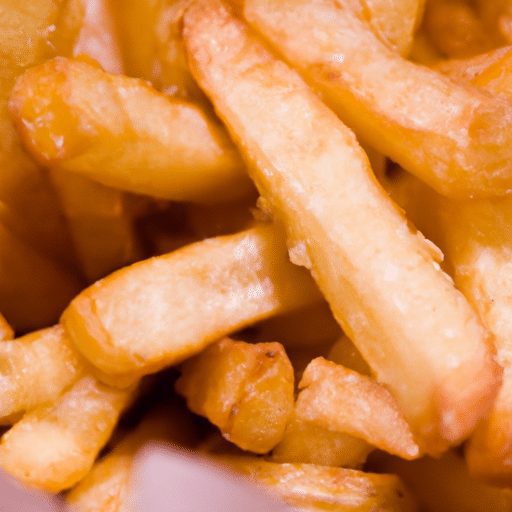Thinking about buying an air fryer but not sure if it’s worth the investment? We’ve got you covered! In this article, we’ll explore the pros and cons of purchasing an air fryer so you can make an informed decision. Whether you’re looking to enjoy healthier meals or crave the irresistible taste of crispy foods, we’ll break down the benefits and drawbacks of this popular kitchen appliance. So, let’s dive in and discover if an air fryer is the right addition to your culinary adventures!
Pros of buying an air fryer
Healthy cooking
One of the biggest advantages of owning an air fryer is the ability to cook healthier meals. Unlike traditional deep frying methods that require a large amount of oil, air fryers use hot air circulation to achieve the same crispy texture without the excessive oil. This results in significantly reduced calorie and fat content of the food, making it a great option for individuals who are conscious about their dietary intake.
Versatile cooking options
Another reason why air fryers have become increasingly popular is their versatility in cooking options. With an air fryer, you can not only fry food but also roast, bake and grill without the need for multiple appliances. This means you can easily prepare a variety of dishes such as crispy fries, juicy grilled chicken, tender roasted vegetables, and even mouthwatering desserts, all in one compact machine.
Reduced oil consumption
Traditional deep frying requires submerging food in a pool of oil, resulting in high oil absorption and added calories. However, air fryers use a minimal amount of oil, typically just a tablespoon or less for most recipes. The innovative technology of circulating hot air around the food helps achieve a crispy exterior, similar to that of deep frying, with significantly less oil. By reducing oil consumption, air fryers offer a healthier alternative without compromising on taste and texture.
Time-saving appliance
In today’s fast-paced world, time is of the essence. Air fryers are designed to save time in the kitchen. With their rapid cooking capabilities, they can significantly reduce cooking times compared to conventional ovens or stovetops. The even heat distribution and high cooking temperatures of air fryers ensure that food cooks evenly and quickly. From preparing a quick family dinner to whipping up a snack in no time, an air fryer can help streamline your cooking process.
Easy to use
Air fryers are designed to be user-friendly, even for those who may not be experienced in the kitchen. They typically come with intuitive controls and pre-set cooking functions, making it a breeze to operate. All you need to do is set the cooking time and temperature, and the air fryer handles the rest. The easy-to-read digital display and clear buttons make it simple to adjust settings according to your preferences. Whether you’re a seasoned cook or a novice in the kitchen, an air fryer offers convenience and simplicity.
Convenient cleanup
Cleaning up after cooking can sometimes be a hassle, with greasy pans and oily residue to deal with. However, air fryers make cleaning up a breeze. Most air fryer baskets have a non-stick coating, allowing food to easily release without sticking. Additionally, removable parts such as the basket and tray are dishwasher safe, making them easy to clean. The compact size of air fryers also means less surface area to clean compared to traditional ovens or stovetops, saving you time and effort.
Energy efficiency
Air fryers are known for their energy efficiency, making them an appealing kitchen appliance for the environmentally conscious. Compared to conventional ovens or deep fryers, air fryers use significantly less energy. Air fryers require less power to generate the hot air needed for cooking, resulting in lower energy consumption and reduced electricity bills. By choosing an air fryer, you can enjoy deliciously crispy food while minimizing your carbon footprint.
Preservation of food’s nutritional value
One of the concerns with traditional cooking methods is the loss of nutritional value in the food due to high heat and prolonged cooking times. Air fryers, on the other hand, help to preserve the nutritional value of food. The short cooking times and even heat distribution of air fryers help retain the vitamins, minerals, and antioxidants present in the ingredients. This means that you can enjoy healthier meals without compromising on taste and texture.
Enhanced flavor and crispiness
Air fryers provide a unique cooking method that results in enhanced flavor and crispiness. The intense heat and rapid air circulation create a Maillard reaction, which is responsible for the rich, golden-brown color and deep flavor of roasted and fried foods. This gives your dishes that desirable crispy texture and delicious taste, similar to that achieved through traditional deep frying. Whether you’re craving a batch of perfectly crispy french fries or a juicy piece of fried chicken, an air fryer can deliver on both flavor and texture.
Can be used for multiple recipes
With an air fryer, the possibilities for culinary creations are endless. From classic favorites like crispy chicken wings and onion rings to healthier alternatives like vegetable chips and tofu nuggets, air fryers allow you to explore a wide range of recipes. You can even use an air fryer to bake desserts like cookies, cakes, and even doughnuts. The versatility of an air fryer means that it can cater to various dietary preferences, making it a valuable addition to any kitchen.
Cons of buying an air fryer
Limited cooking capacity
While air fryers offer a range of cooking options, they do have a limited cooking capacity. The size of the fryer basket determines the amount of food that can be cooked at once, which may not be sufficient for large families or gatherings. If you often cook for a larger number of people or need to prepare larger portions, you may find yourself having to cook in batches or consider investing in a larger air fryer.
Requires preheating
Unlike some other cooking appliances, air fryers typically require preheating before use. Preheating allows the fryer to reach the desired cooking temperature, ensuring that the food cooks evenly and achieves the desired texture. However, preheating can add a few extra minutes to the cooking process, which may be a drawback if you’re looking for a quick meal solution. It’s important to factor in the preheating time when planning your meals with an air fryer.
Pricey investment
Air fryers can be considered a relatively expensive kitchen appliance compared to traditional cooking equipment. While their prices vary depending on the brand and features, high-quality air fryers can be an investment. However, it’s important to consider the long-term benefits and convenience that an air fryer offers. If you frequently enjoy fried or roasted food, an air fryer can help save on oil costs and provide a healthier alternative in the long run.
Potential for dryness
Although air fryers produce crispy food, there is a potential for dryness, especially when cooking certain ingredients. Since air fryers use hot air rather than oil for cooking, ingredients that naturally have a low moisture content may become dry or overcooked if not properly monitored. It’s important to follow cooking instructions and keep an eye on the food to ensure it doesn’t become too dry. For recipes with naturally higher moisture content, such as vegetables or meat with marinades, this may not be a significant concern.
Not suitable for certain foods
While air fryers offer a wide range of cooking options, there are certain foods that may not be suitable for this appliance. Foods that are battered or have a wet coating may not adhere well or cook evenly in an air fryer. Additionally, foods that release a lot of moisture during cooking, such as watery fruits or vegetables, may not achieve the desired texture or crispness in an air fryer. It’s important to consider the specific recipes or ingredients you plan to cook and ensure they are compatible with the air fryer’s cooking method.
Can have a strong smell
When using an air fryer, especially for recipes that involve strong flavors or ingredients, there can be a lingering smell in the kitchen. While many people enjoy the aroma of freshly cooked food, others may find it overpowering or undesirable. It’s important to consider proper ventilation or the use of air fresheners if you are sensitive to strong cooking smells. The intensity of the smell can vary depending on the recipe and ingredients used.
Requires counter space
Air fryers typically have a compact design, but they still require counter space in your kitchen. If you have limited counter space or a small kitchen, this may be a consideration. It’s important to measure and allocate an appropriate area for the air fryer, ensuring that it is easily accessible and doesn’t interfere with other kitchen tasks. Additionally, if you plan to keep the air fryer on the counter full-time, consider its appearance and how it fits into your kitchen aesthetic.
Noisy operation
An air fryer produces a certain level of noise during operation, similar to other kitchen appliances. The fan and heating elements create the necessary airflow and heat generation, resulting in a humming or whirring sound. While the noise level is generally tolerable, it’s important to consider if the noise may be disruptive in your kitchen environment, especially if you have an open-concept layout or are sensitive to noise. If noise is a concern, you may want to research models that offer quieter operation.
May cause smoke or fumes
During the cooking process, air fryers can generate smoke or fumes, particularly when cooking high-fat foods or using too much oil. This can result in an unpleasant smell and potential smoke alarms being triggered. It’s important to follow cooking instructions, use an appropriate amount of oil, and ensure proper ventilation in your kitchen. Taking these precautions will help minimize any smoke or fumes and create a more enjoyable cooking experience.
Risk of overcooking or burning
While air fryers offer convenience and rapid cooking times, it’s important to monitor the food closely to prevent overcooking or burning. The high temperatures and intense heat generated by air fryers can cause food to cook faster than expected, especially with smaller or thinner ingredients. It’s important to adjust cooking times accordingly and check the food regularly to ensure it reaches the desired level of doneness. With some trial and error and a bit of caution, you can easily master the art of cooking with an air fryer.
In conclusion, air fryers offer a range of benefits and considerations to weigh when deciding whether to purchase one. From healthier cooking options and versatility in recipes to time-saving convenience and energy efficiency, air fryers have become a popular appliance in many kitchens. However, factors such as limited cooking capacity, preheating requirements, and potential for dryness need to be taken into account. By considering both the pros and cons, you can make an informed decision based on your cooking needs and preferences. Whether you’re looking to enjoy guilt-free crispy meals or experiment with new recipes, an air fryer can be a valuable addition to your culinary arsenal.































